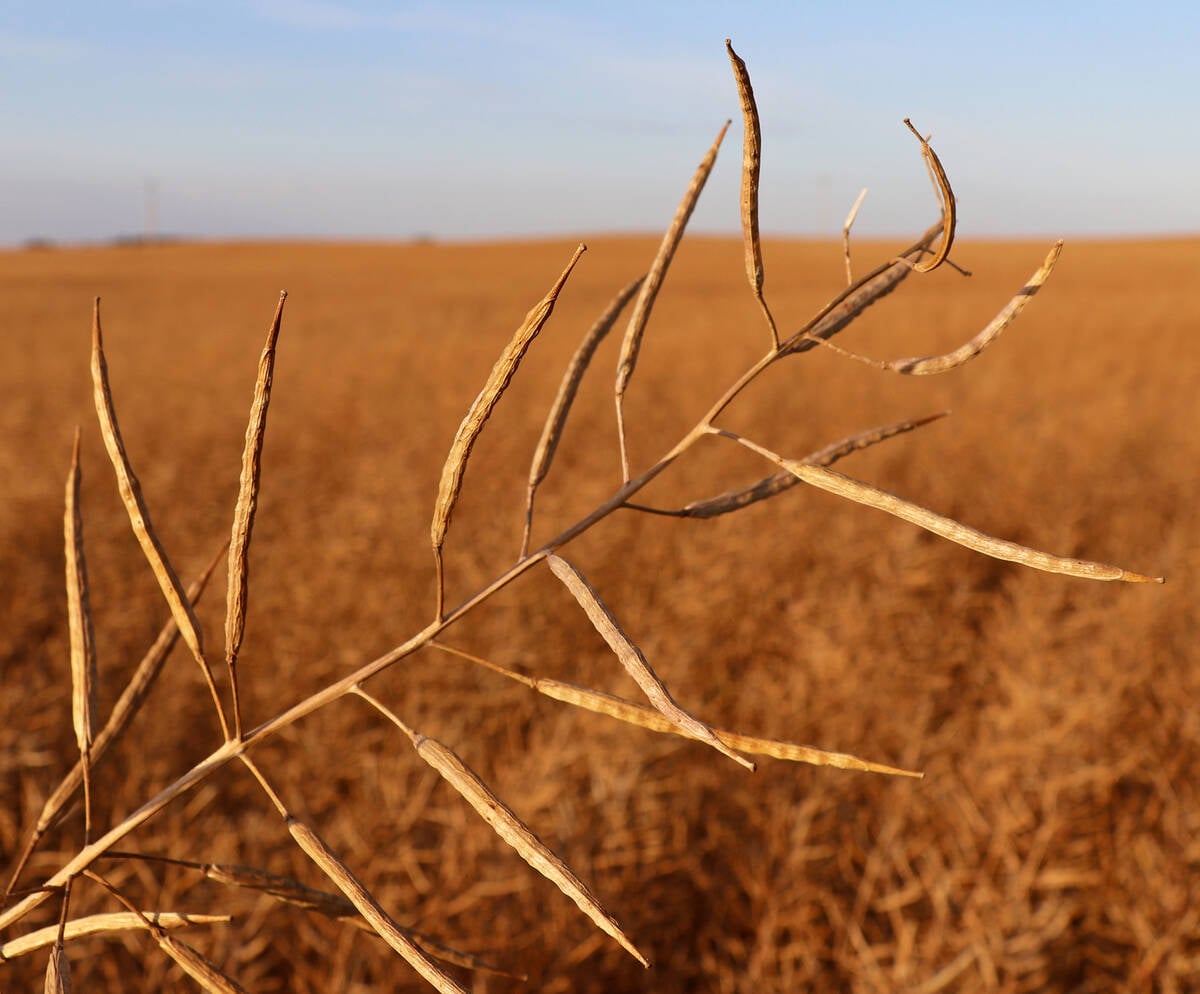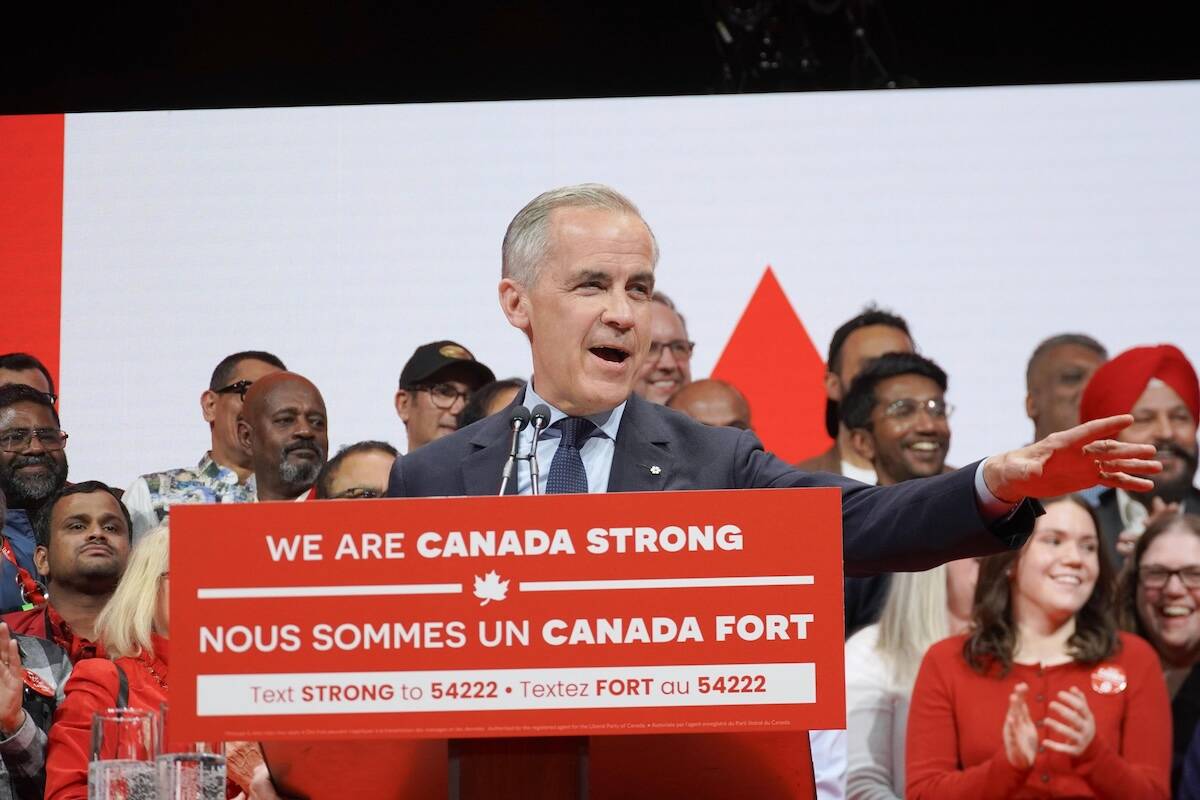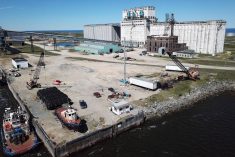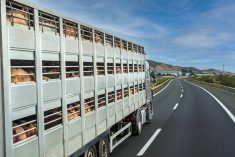Manitoba’s agriculture sector is taking stock after Canada’s federal election ushered in another Liberal minority under Prime Minister Mark Carney.
The final count after Canadians went to the polls April 28 saw a highly split vote, with both the Liberal Party and Conservative Party gaining seats over their last election results, while the Bloc Québécois and New Democratic Party slid. At 168 seats, the Liberals came four seats short of the 172 needed for a majority government, while the Conservative stake in the House of Commons grew to 144 seats.
The NDP threatened to lose its official party status with only seven seats.
Read Also

Canola suffers chaotic 2025
Canola had something of a tumultuous 2025, pushed one way or another by a variety of factors. Nearby canola futures traded in a wide range from about C$550 to C$750 per tonne over the last year, but were within a few dollars of where they started by December with the most-active March contract in the middle of that range at nearly C$633 as of Dec. 11.
WHY IT MATTERS: Canada’s federal election April 28 took place as the nation finds itself embroiled in trade tensions with some of its biggest trading partner nations.
“We’re glad that the election has concluded, and that we have such certainty, especially given the sort of challenges we face with tensions with the U.S. So having, you know, having certainty to know who will be kind of at the negotiating table with the Americans is good,” said Colin Hornby, the general manager of the Keystone Agricultural Producers.
Minority governments aren’t known for their nimbleness or decisive action, nor always for their stability.
At the same time, Hornby noted, the last minority government stood for longer than many thought that it would.
He added that the general farm group will be working to engage with newer MPs in Manitoba, including urban MPs, to stress agriculture’s role and importance.
Canadian agriculture presses priorities
Other Canadian agriculture groups released statements noting their willingness to work with the new government and pushing for immediate action on the sector’s action items.
“A strong, resilient agriculture sector is vital to the health, economy, and security of our entire nation,” said Keith Currie, president of the Canadian Federation of Agriculture.
“As Canada faces increasing pressures from international trade tensions, now is the time for strong leadership and bold investment in the competitiveness and resilience of Canada’s agricultural sector.”
The CFA said it’s eager to meet with the new government to advance priorities like supporting farmers through tariff uncertainty, reducing interprovincial trade barriers and improving risk management.
The Grain Growers of Canada (GGC) also urged Carney’s Liberals to “act swiftly” on promised capital gains tax reversals and against tariffs from the U.S. and China.
“From rising input costs and global market uncertainty to transportation bottlenecks and regulatory pressures, producers are facing a growing list of challenges that require immediate federal attention,” said GGC executive director Kyle Larkin, adding that “Grain farmers are ready to be an equal partner with government in growing Canada’s economy.”

Serge Buy, chief executive officer of the Agri-Food Innovation Council (AIC) also said in a statement that he believes “there will be stability for the next year or two, even though this was a minority.”
The AIC welcomed proposed Liberal policy like product labelling to encourage consumers to “buy Canadian,” reviews of the Canadian Food Inspection Agency (CFIA) and Pest Management Regulatory Agency (PMRA).
Manitoba election goals
KAP would like to see the new federal government permanently take carbon pricing on the table. Before calling the election, Carney promised to do away with consumer carbon pricing.
“I know that that was done through a regulatory … order of counsel. But getting that made permanent, repealed through legislation, is definitely something on top of mind,” Hornby said.
A number of things that have recently come down the pipe as announced changes or were promised in the Liberal platform are also things KAP would like to see in place as soon as possible. That includes AgriStability changes, market diversification efforts and support for trade corridors.
Another item of interest relates to federal regulations and a desire for better mutual recognition between Canada and trusted regions with similarly proven robust regulatory systems.
“I know it’s something that Minister Bois (Kody Blois, minister of agriculture and agri-food prior to the election) had put forward when he was an MP, not a minister,” Hornby said. “He had a piece of legislation that we, we thought was a good piece. So there’s, there’s some stuff there that we’re looking forward to promoting and pushing forward on and seeing a lot of the work on the federal front we do in collaboration with with the CFA.”
Agriculture is going to have to wait to see what the new post-election cabinet looks like and what agricultural priorities make the cut during the government’s speech from the throne, Hornby added.

House shakeup
Blois held onto his Nova Scoita seat in Kings-Hants on election night, as did other MP’s of agricultural interest. That included Yves Perron of the Bloc Québécois, who was the house agriculture committee vice-chair. Also, Conservative Ben Lobb, who previously sponsored Bill C-234, which was to amend the Greenhouse Gas Pollution Pricing Act, which would have added certain agricultural carbon price exemptions. The last Conservative agriculture critic, John Barlow, similarly retained his seat.
In an upset, the election also saw New Democrat leader Jagmeet Singh and Conservative leader Pierre Poilievre lose their seats. Singh resigned the party’s leadership on election night.
Poilievre stated he will remain as leader. On May 2, news came that Damien Kurek, who won Alberta’s Battle River-Crowfoot riding for the Conservatives, will step down. That will open the door for a byelection in which Poilievre would be running under the Conservative banner.
Other upsets included Liberal wins in northern Saskatchewan and Manitoba —With files from Karen Briere and Jonah Grignon
















